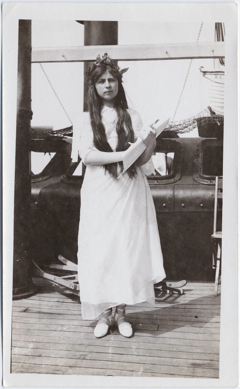Aristotle
There is no doubt that Aristotle’s texts are misogynist; he thought that women were inferior to men and he said so explicitly. For example, to cite Cynthia Freeland’s catalogue: “Aristotle says that the courage of a man lies in commanding, a woman’s lies in obeying;” that “matter yearns for form, as the female for the male and the ugly for the beautiful;” that women have fewer teeth than men; that a female is an incomplete male or “as it were, a deformity”: which contributes only matter and not form to the generation of offspring; that in general “a woman is perhaps an inferior being”; that female characters in a tragedy will be inappropriate if they are too brave or too clever.”
William Faulkner
The addressee is named Joan Williams. She is 30 years old, and she’s written the manuscript for a first novel called The Morning and the Evening. I mention this because Faulkner doesn’t begin it with “Dear Miss Williams.” Instead:
This is not you, this is somebody else combing the bushes for plugs for your book. Haydn [Hiram Haydn, her editor] should be ashamed in having forced you to this shabbiness. How about this?
QUOTE: this is a compassionate and hopeful first novel, hopeful in the sense that I don’t believe Miss Williams will be satisfied until she has done a better one.
Jonathan Franzen
Edith Newbold Jones [Wharton] did have one potentially redeeming disadvantage. She wasn't pretty.
Philip Larkin
This is an extract from the most memorable letter in the book [from Larkin to lover Monica Jones]: “Dear, I must sound very pompous & huffy... It’s simply that in my view you would do much better to revise, drastically, the amount you say and the intensity with which you say it... I do want to urge you, with all love & kindness, to think about how much you say & how you say it. I’d even go so far as to make 3 rules: One, Never say more than two sentences, or very rarely three, without waiting for an answer or comment from whoever you’re talking to; Two, abandon altogether your harsh didactic voice, & use only the soft musical one (except in special cases); & Three, don’t do more than glance at your interlocutor (wrong word?) once or twice while speaking. You're getting a habit of boring your face up or round into the features of your listener—don’t do it! It’s most trying.”
Norman Mailer
Mailer did not actually kill any of his wives (unlike the French philosopher Louis Althusser, who strangled his), but he stabbed his second wife twice in the neck and his fourth accused him of beating her. His fascination with hyper-masculinity drew him to boxing; it also resulted in tragedy when Mailer was instrumental in securing the release of a convicted killer, Jack Abbott, who then stabbed a waiter to death.
William Butler Yeats
In the summer of 1916 William Butler Yeats asked Maud Gonne to marry him. This had become something of a habit over the twenty-seven years since he had first met and fallen in love with her and, as he put it, “the troubling of my life began.” ... Yeats made his proposal in a perfunctory fashion, with conditions attached, expecting and somewhat hoping to be turned down yet again, as he was. As R. F. Foster writes in this much anticipated second and final volume of his biography of the great Irish poet, occultist, and sucker for romantic punishment, “When he duly asked Maud to marry him, and was duly refused, his thoughts shifted with surprising speed to her daughter.”
